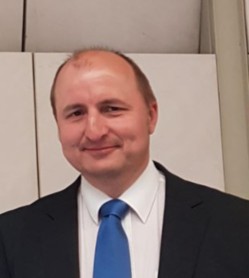 Assoc. Prof. dr. Drago Bokal, PhD
Assoc. Prof. dr. Drago Bokal, PhD
Laboratory for Natural Science and Mathematical Applications and Research
Faculty of Natural Sciences and Mathematics
University of Maribor
Maribor, Slovenia
e-mail: drago.bokal@um.si
Title of the invited lecture: Making Sense of Knowledge in the Era of Artificial Intelligence
Authors: Drago Bokal
In the era of Artificial Intelligence, knowledge is being commoditized. Given Bloom’s taxonomy of educational goals, remembering has been superseded already by the first internet search engine Archie in 1990 and is dominated today by Google. Understanding has been superseded by web as corpus models in the 2000s and is today dominated by LLMs like ChatGPT, Bard, DeepSeek and others. Applying this knowledge is the next Bloom’s taxon being addressed by the models, and there, operations research has a cornerstone position.
In the talk, we outline four models whose understanding has the potential to shape the sensemaking of knowledge in the near future, hoping that they all pass the paper-napkin test. Cynefin is Snowden’s model of sensemaking in decision-demanding circumstances. It binds the other three models into a universal process of knowledge discovery, which is the second model. The third model addresses the availability of attention, a central modern active constraint. Finally, the Knowledge Exchange Game addresses the interests of individual agents in this process.
The world today is at a crossroads. Bulletin of Atomic Scientists, founded by Einstein and a team of Manhattan project scientists in 1945, has set the apocalyptic clock to 89 seconds till midnight. Has politics lost its compass in the chaos of interests? Have we abandoned Aristotle’s “middle way is the golden way”? Are we objecting to Kant’s “Don’t do unto others what you don’t wish to be done to yourself?” In modern days, Ricoeur has combined them into the categorical imperative of “To live a good life with others and for others in just institutions.” And Trontelj has observed that declining institutions stop serving people and tend to favour preserving themselves, so he concluded that “The ethical imperative is to live a good life with others and for others in a just order.”
As an inspiring mathematical scientific talk should have an open problem, in operations research preferably related to optimization, we conclude with one. In the context of Cynefin, intuitively, simple decision processes educate soldiers and bureaucrats, complicated decision processes educate experts, complex decision processes educate scientists, and chaotic decision processes educate saviours and dictators. Aspects of this claim have been investigated by various domains of science.
Hence, our optimisational open problem: Which is the smallest consistent set of scientific concepts and assumptions, in which the claim can be formulated within a relevant learning context, and be either confirmed or refuted?
The talk is based on joint work with Ernest Petrič, Anja Goričan, Špela Kaizer, Andreja Smole, Petra Fic, and Mitja Steinbacher.
Keywords: Agent-based models, Cynefin, Decision processes, Interface Theory of Perception, Learning spaces
Short CV:
Assoc. prof. dr. Drago Bokal, PhD, is a member of the Institute for Natural Science and Mathematical Research and Applications at FNM UM, a member of the Institute of Mathematics, Physics, and Mechanics at the University of Ljubljana, and lectures courses in Mathematical modelling, Combinatorial optimisation, and Operations research at the Department of Mathematics and Computer science at the Faculty of Natural Sciences and Mathematics University of Maribor. In 2001, he co-founded a startup Xlab, but after initial success of the company decided to pursue academic career in graph theory combining it with applications of mathematics. In this direction, he cofounded Crossing Number Workshop that has been held annually since 2011. Since 2019, he is coorganizing a special session Industry & Society 5.0: Optimization in Industrial and Human Environments at the SOR conferences. He is dedicated to collaboration with junior colleagues and motivating their quest for knowledge. From 2007 to 2012, he served as vice-dean for industrial and international collaboration. In 2009, he joined Cosylab as a project manager and later became Head of Research, establishing a successful grant office and managing projects in smart grids, smart homes, and medical diagnostics. After leading a joint venture, LetrikaSol, through its development phase, he transitioned to an independent business career. In 2018, he co-founded DataBitLab to explore AI-driven digital twin technology applications in energy and manufacturing.